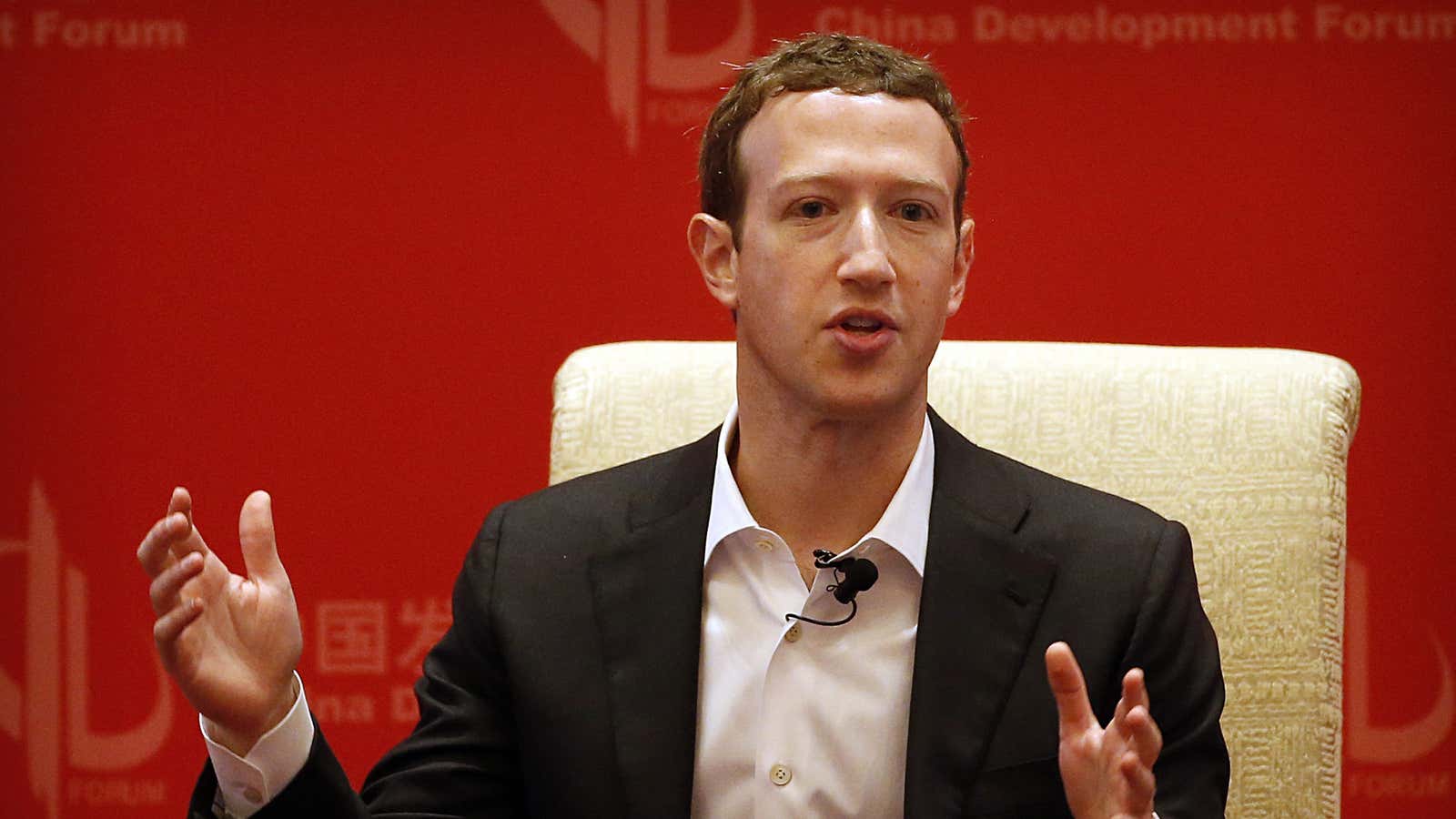A “face book” in China could well have meant an energy drink, if Facebook hadn’t prevailed in a recently concluded court case. Last month the tech giant narrowly won a trademark lawsuit against a Chinese company that registered the name for use with the food and beverage products it makes.
The Beijing Municipal High People’s Court ruled to deregister the “face book” trademark owned by Liu Hongqun, an executive with Zhongshan City Zhujiang Beverage Factory, based in southern Guangdong province. The final judgment was made on April 25, according to state newspaper Judicial Daily (link in Chinese).
Mark Zuckerberg’s company filed to register the name “Facebook” in China in 2006, and received approval from China’s trademark authority in 2009. Despite this, Liu made a successful bid to register “face book,” which he aimed to use for everything from drinks to canned vegetables to potato chips.
After Liu’s bid was approved in 2014 (three years after his initial application), Facebook filed a lawsuit to a lower Beijing court. That court overturned the trademark authority’s decision to give Liu the name. The final judgment in April affirmed the earlier court decision in favor of Facebook.
Both Facebook and the Chinese company declined to comment on the case.
Facebook didn’t prevail for the reasons one might assume. According to the final court judgment (link in Chinese), both the Chinese trademark authority and the earlier court found there was insufficient evidence to prove that Facebook was well known within China. Facebook lawyers provided Chinese media reports, academic papers, and search engine results about the service to bolster their case. But the Facebook service itself has been blocked in China since 2009.
It was only because Liu was discovered to have registered other prominent names—including one used by a domestic toothpaste maker—that he lost the case. The court decided (link in Chinese) he had an ”obvious intention to copy and plagiarize other high-profile trademarks.”
Otherwise, Facebook might have joined a long list of other foreign companies struggling to control their brands in the ”People’s Republic of Counterfeits,” as China is sometimes called. Air Jordan, a Nike division named after the NBA star Michael Jordan, has been stuck for years in a legal battle with a Chinese sportswear company using a similar name and logo. Baltimore-based sportswear maker Under Armour has run into a similar situation. Apple recently lost in court to a Chinese company that makes and sells handbags and other leather products branded “IPHONE.”
“Trademark law enforcement often has inconsistent judgments [in China],” said You Yunting, an intellectual property lawyer and partner at Shanghai’s Debund Law Offices. “The Chinese government is actually quite ambiguous. On the one hand, it needs the world to know that it protects intellectual property rights. On the other, it’s unwilling to protect those of foreign investors.”
